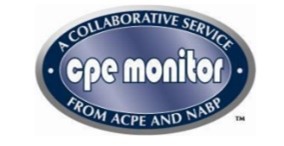Announcer:
Welcome to CME on ReachMD. This episode is part of our MinuteCE curriculum.
Prior to beginning the activity, please be sure to review the faculty and commercial support disclosure statements as well as the learning objectives.
Dr. Betof Warner:
Hi, I'm Allison Betof Warner. I'm the Director of the Melanoma Program at Stanford, and today we'll be talking about Navigating Treatment-Related Adverse Events in LAG-3 Combination ICI Therapy for Metastatic Melanoma.
So to start with a case, we have a 43-yearold man with BRAF-wildtype cutaneous melanoma that was metastatic to the lungs and liver. He was started on combination nivolumab plus relatlimab every 4 weeks, tolerated two cycles with no evidence of toxicity, and then started to report loose stools, progressing to diarrhea over 3 days. Three days ago, he had four loose bowel movements. Yesterday, he had eight episodes of watery diarrhea. And today, he already had three this morning. He denies abdominal pain or blood in his stool, but does have some mucus in the stool. The patient had held nivolumab/relatlimab for cycle 3, and was started on 1 mg/kg of prednisone.
So if we think about immune-related adverse events overall, right, these are really on-target toxicities. We are trying to activate a T lymphocyte to have activity against melanoma, but that same T lymphocyte can have activity or autoimmunity against normal cells. And depicted here on the right, you can see that essentially any organ can become inflamed from immune checkpoint blockade.
So if we look specifically at nivolumab plus relatlimab from the RELATIVITY-047 trial, this compared nivolumab plus relatlimab versus nivolumab. And we can see here certain toxicities that have higher rates in nivo plus rela. However, overall, these patients actually do quite well, and certainly when we think about this in comparison to combination ipilimumab plus nivolumab.
So if we look at that in contact from the relatlimab plus nivolumab versus ipilimumab plus nivolumab. Now these are cross-trial comparisons, and we always need to be cautious about doing that, as this was not a randomized trial comparing these two regimens. But based on the data that we do have grade 3/grade 4 treatment related adverse events for relatlimab plus nivolumab at 18.9% versus 9.7% for nivolumab. And if we look at that for ipilimumab plus nivolumab, that is 55% versus 16.3% for nivolumab alone. So the control arm here is the same and a bit higher in the CheckMate-067, trial that looked at ipi plus nivo. But overall, we can see that the relatlimab plus nivolumab appears much more tolerable.
If we look at any grade treatment-related adverse event that led to treatment discontinuation, that was 14.6% for nivolumab plus relatlimab versus 36.4% in CheckMate-067 for combination ipi plus nivo, with comparable rates of discontinuation of nivolumab across those trials.
I would like to point out that there are guidelines here for how to manage treatment-related adverse events. There have been multiple guidelines put out by ESMO, by SITC, as well as by ASCO. And there are now really great options to manage immune-related adverse events, but the best management is prevention of immune-related adverse events whenever possible.
In summary, treatment with immune checkpoint inhibitors can be complicated by immune-related adverse events. Nivo plus rela has about a 10% higher risk of toxicity than nivo alone. Immune-related adverse events are manageable but require early recognition and often require systemic corticosteroids. And guidelines exist to facilitate appropriate management of those irAEs.
Announcer:
You have been listening to CME on ReachMD. This activity is jointly provided by Global Learning Collaborative (GLC) and TotalCME, LLC. and is part of our MinuteCE curriculum.
To receive your free CME credit, or to download this activity, go to ReachMD.com/CME. Thank you for listening.


 In support of improving patient care, this activity has been planned and implemented by Global Learning Collaborative (GLC) and Total CME, LLC. GLC is jointly accredited by the American Council for Continuing Medical Education (ACCME), the Accreditation Council for Pharmacy Education (ACPE) and the American Nurses Credentialing Center (ANCC) to provide continuing education for the healthcare team.
In support of improving patient care, this activity has been planned and implemented by Global Learning Collaborative (GLC) and Total CME, LLC. GLC is jointly accredited by the American Council for Continuing Medical Education (ACCME), the Accreditation Council for Pharmacy Education (ACPE) and the American Nurses Credentialing Center (ANCC) to provide continuing education for the healthcare team. 

